Demolition Contractors New Cassel
Top 10 Building Demolition in New Cassel
Receive up to 3 Demo Contractor quotes for your project today! Compare profiles, reviews, accreditations, portfolio, etc... and choose the best service.
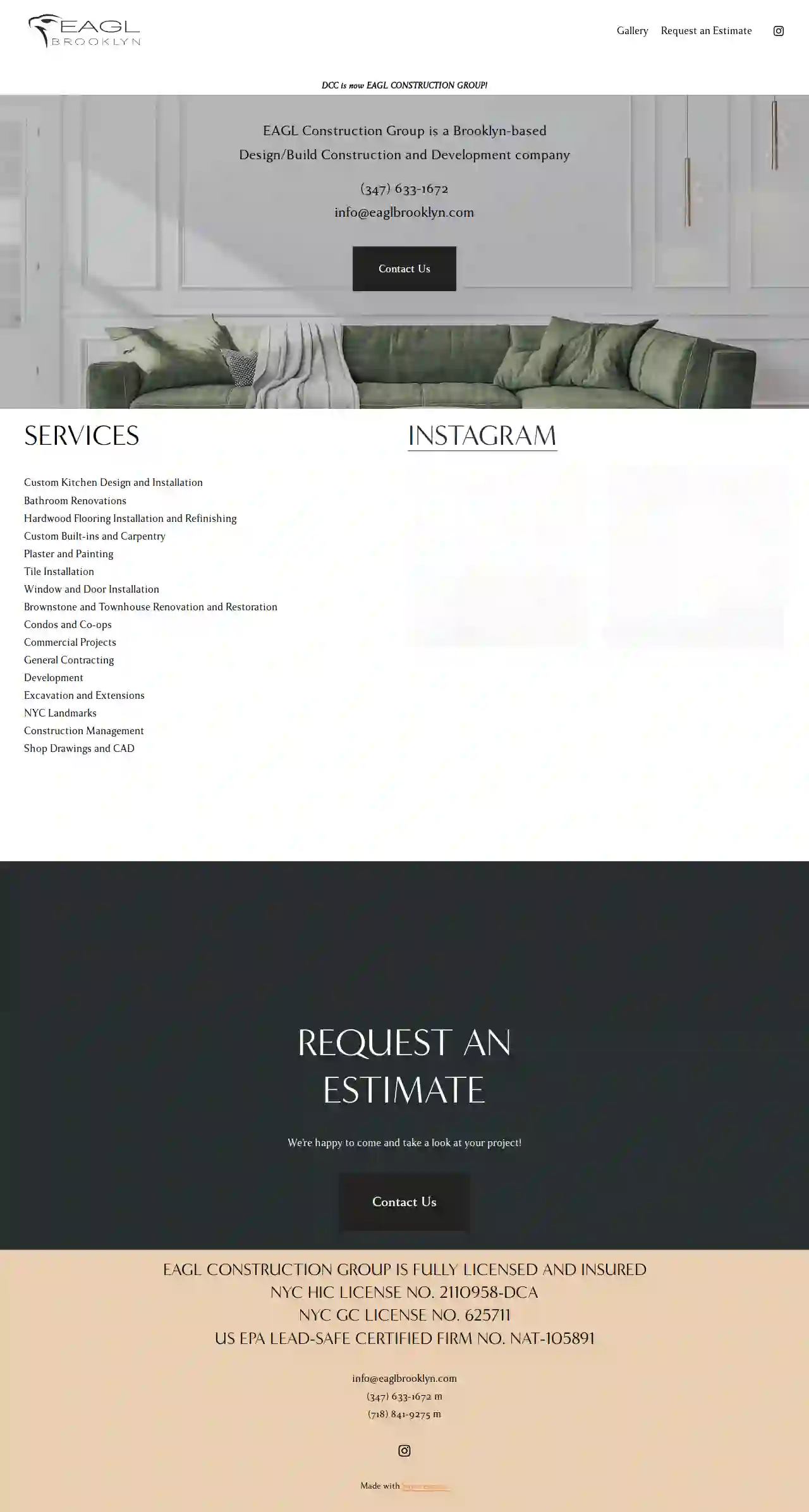
EAGL Construction Group LLC
52 reviewsBrooklyn, USEAGL Construction Group is a Brooklyn-based Design/Build Construction and Development company. We specialize in a wide range of services, from custom kitchen design and installation to bathroom renovations, hardwood flooring, and more. We also offer general contracting, development, excavation, and extensions for both residential and commercial projects. Our team of experienced professionals is dedicated to providing our clients with the highest quality workmanship and customer service. We are fully licensed and insured, and we are committed to exceeding your expectations. Whether you are looking to renovate your bathroom, build a new kitchen, or simply need help with a small repair, EAGL Construction Group is here to help. Contact us today for a free consultation.
- Services
- Why Us?
- Gallery
Get Quote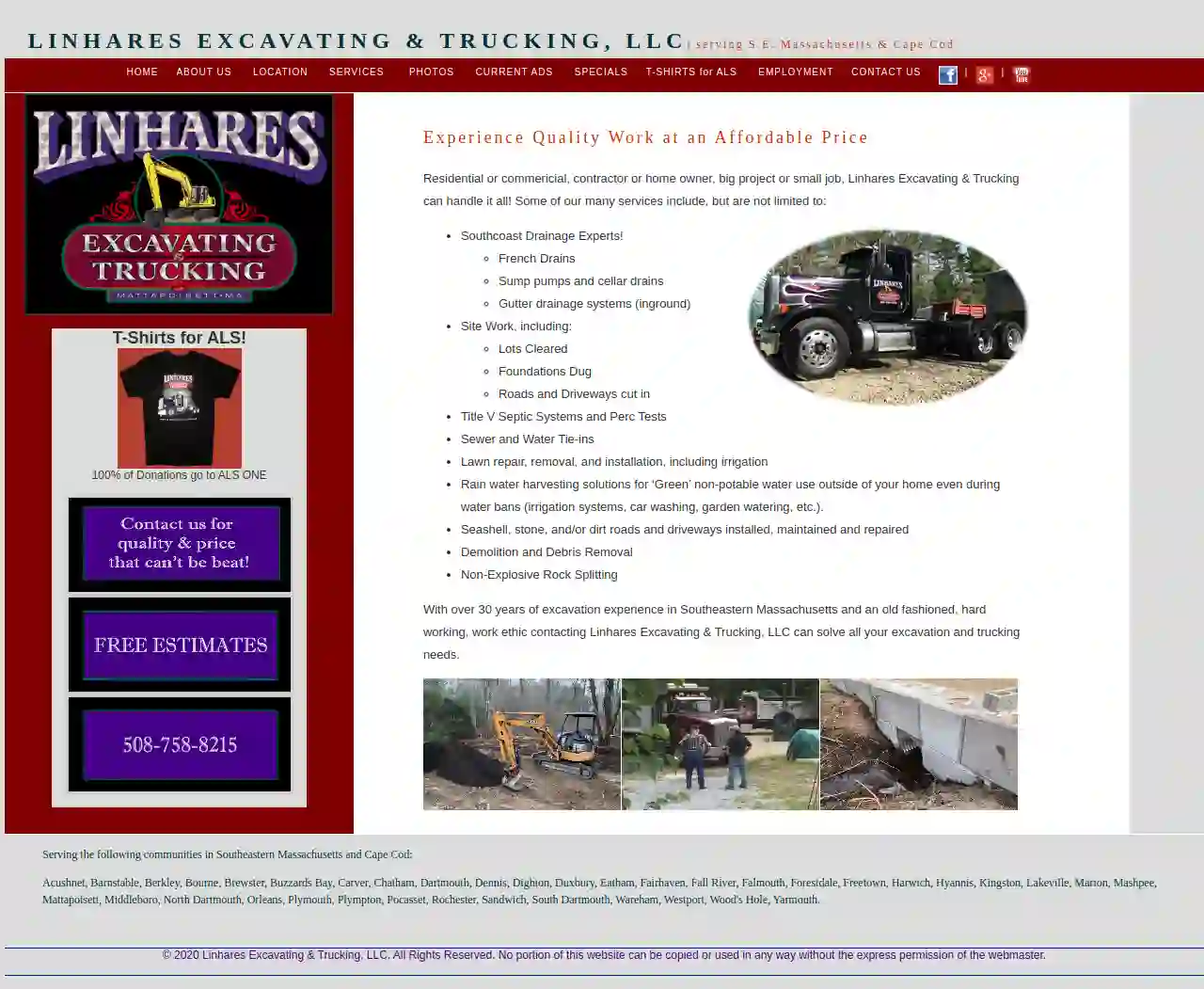
Linhares Excavating & Trucking, LLC
52 reviewsMattapoisett, USLinhares Excavating & Trucking, LLC: Your Trusted Partner for Excavation and Trucking Needs in Southeastern Massachusetts and Cape Cod For over 30 years, Linhares Excavating & Trucking, LLC has been a leading provider of excavation and trucking services in Southeastern Massachusetts and Cape Cod. We are a family-owned and operated business with a strong commitment to quality, customer satisfaction, and a dedication to providing our clients with the best possible experience. Whether you're a homeowner, contractor, or business owner, we have the expertise and resources to handle any project, big or small. Our team of experienced professionals is dedicated to providing you with the highest quality workmanship and exceptional customer service. We understand that your project is important to you, and we're committed to working with you every step of the way to ensure your complete satisfaction. We take pride in our commitment to safety and environmental responsibility. We use the latest equipment and techniques to ensure that all our projects are completed on time and within budget, while minimizing our impact on the environment. Contact us today for a free estimate and let us show you why Linhares Excavating & Trucking, LLC is the right choice for all your excavation and trucking needs.
- Services
- Why Us?
- Gallery
Get Quote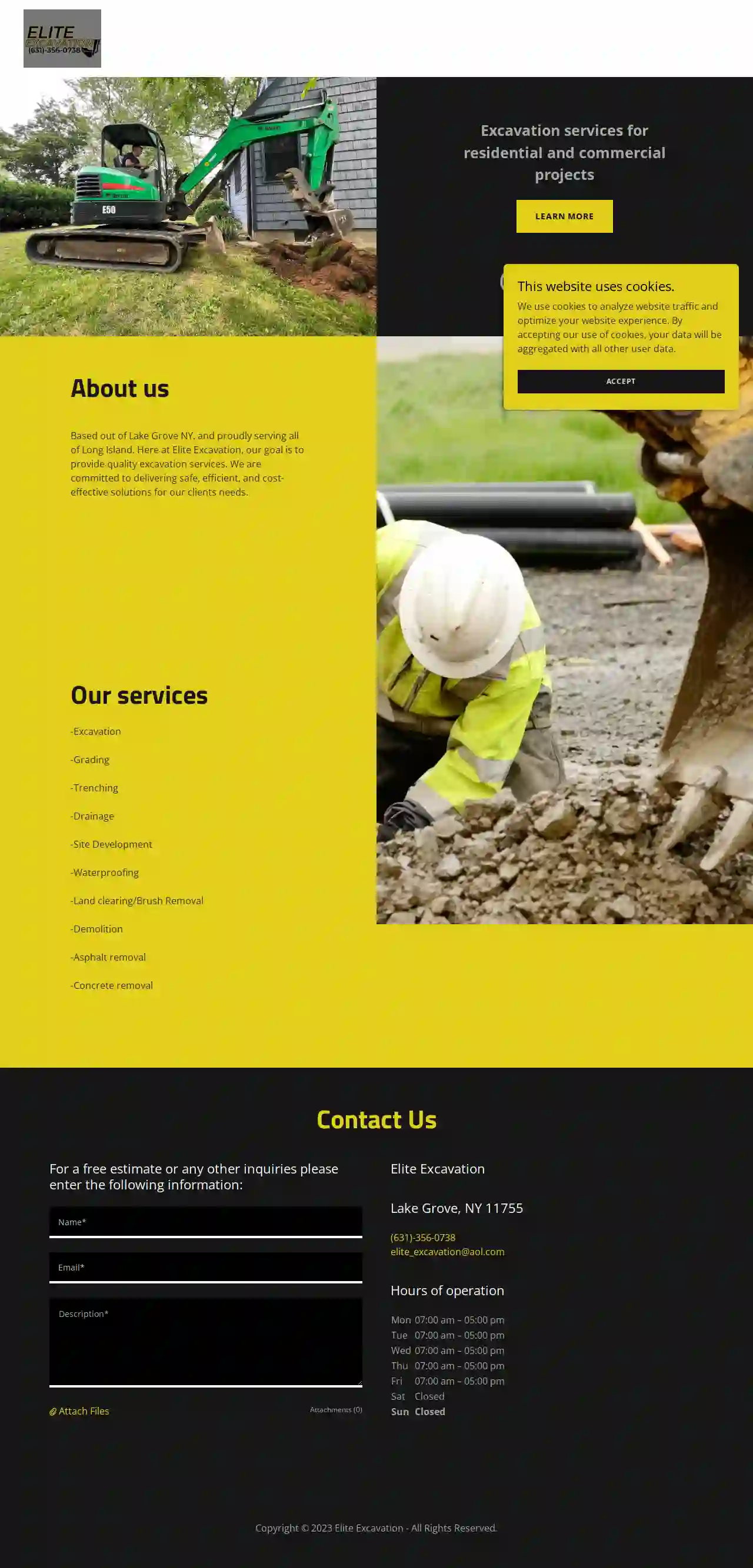
Elite Excavation
51 reviewsLake Grove, NY, 11755, USAbout us Based out of Lake Grove NY, and proudly serving all of Long Island. Here at Elite Excavation, our goal is to provide quality excavation services. We are committed to delivering safe, efficient, and cost-effective solutions for our clients' needs.
- Services
- Why Us?
- Gallery
Get Quote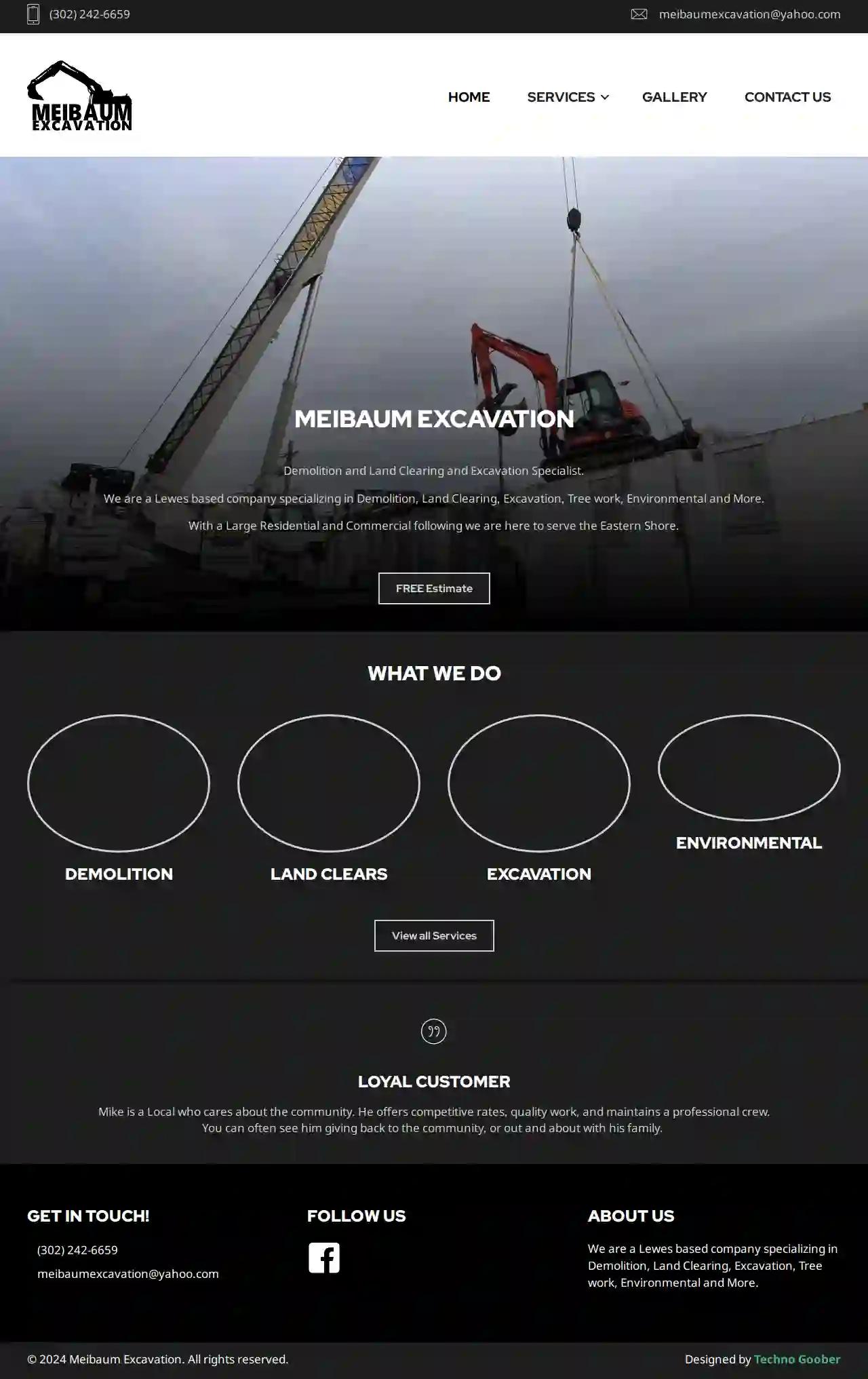
Meibaum Excavation
534 reviewsNew York, USMeibaum Excavation: Your Trusted Partner for Demolition, Land Clearing, and Excavation Meibaum Excavation is a Lewes-based company dedicated to providing top-notch demolition, land clearing, excavation, tree work, environmental services, and more. We have a strong reputation for serving both residential and commercial clients across the Eastern Shore. Our team is committed to delivering high-quality work, competitive rates, and a professional approach. We are proud to be a part of the community and strive to give back whenever possible. Whether you need to demolish a multi-story home, clear land for a new development, or excavate for a basement, Meibaum Excavation has the expertise and experience to handle your project efficiently and effectively. We are committed to safety and environmental responsibility, ensuring that all our work is completed to the highest standards. Contact us today for a free estimate and let us help you bring your vision to life.
- Services
- Why Us?
- Testimonials
- Gallery
Get Quote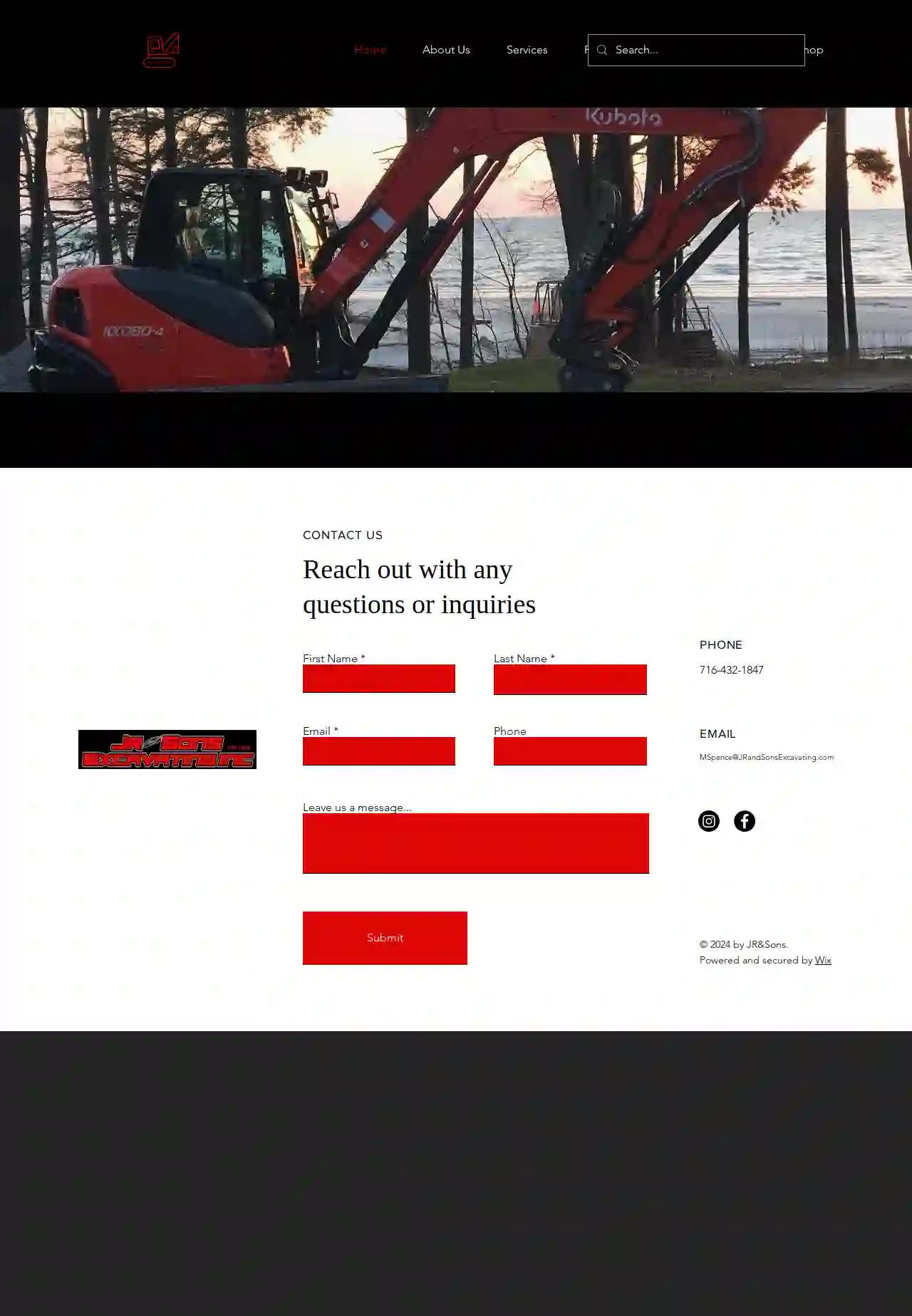
JR & SONS EXCAVATING
51 reviewsEden, USAbout JR & Sons Excavating JR & Sons Excavating is a family-owned business with over 30 years of experience in the fields of Excavating and Landscape Architecture. We are dedicated to providing our clients with the highest quality service and workmanship. Our team is equipped with the best equipment and knowledge to safely and effectively complete any project you desire. Owner and Operator, Joe Chimera, focuses great emphasis on every individual's needs so that their project will be executed to the highest standards. Joe and his team are committed to exceeding your expectations and delivering exceptional results. We take pride in our equipment and utilize top products in our industry to ensure your project is completed efficiently and to the highest standards.
- Services
- Why Us?
- Gallery
Get Quote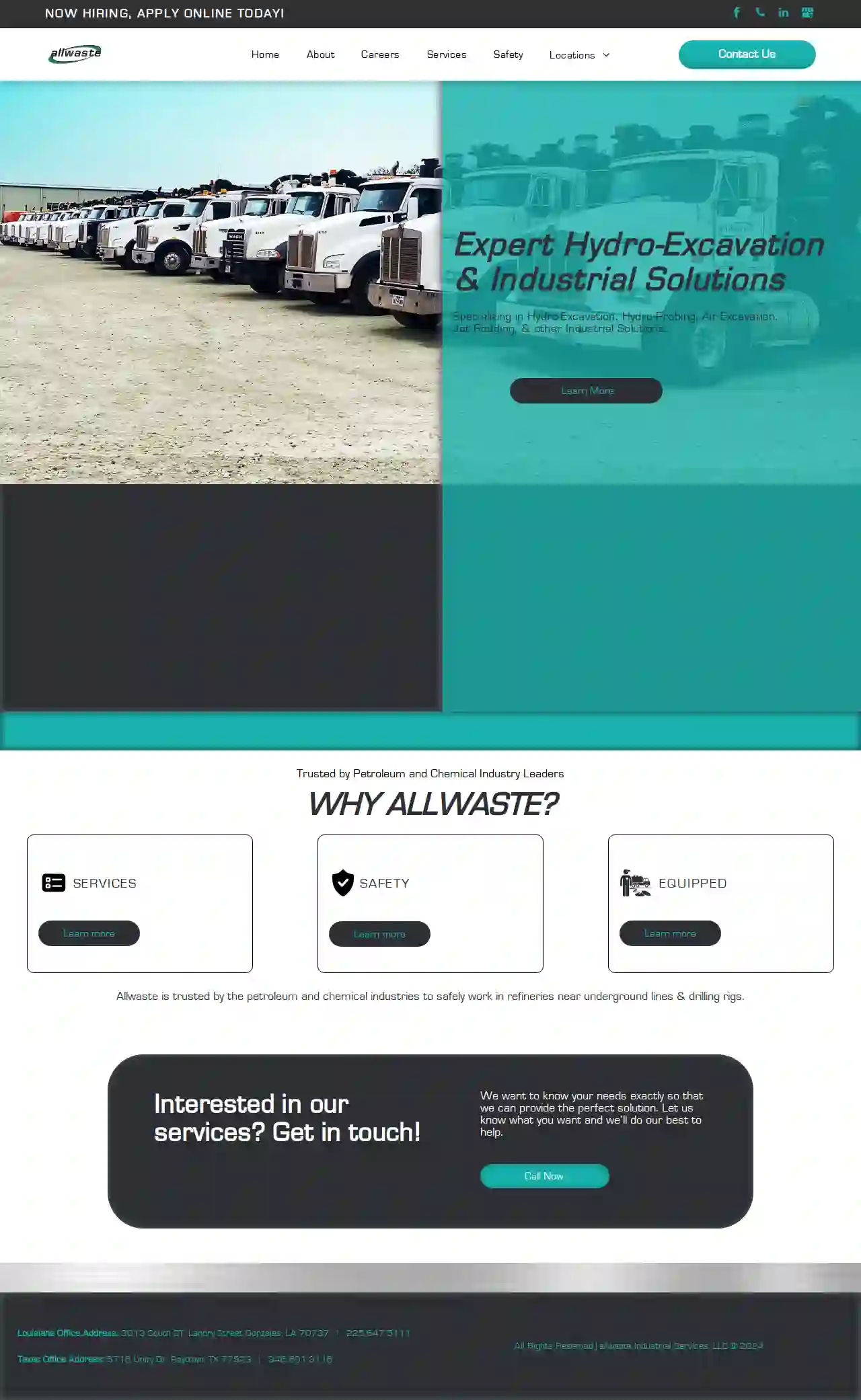
Allwaste Industrial Services, LLC
4.217 reviews3013 South ST. Landry Street, Gonzales, LA, 3013 South ST. Landry Street Gonzales, 70737, USAbout Allwaste Industrial Services We dig where no one else will, with precision and integrity Allwaste Industrial Services provides hydro-excavation, hydro-probing, air excavation, roll-offs, pressure washing, jet rodding, dry and wet vacuuming. Our highly qualified personnel are equipped with cutting-edge technology to give you the best results. Allwaste Industrial Services LLC was founded by a group of passionate individuals with over 75 years of combined experience in the oil and gas, excavation, mid-stream, and industrial sectors. Our offices are based in Baytown, TX and Gonzales, LA. With a large fleet of hydro-excavators and vacuum trucks, our teams are equipped to travel coast to coast. Contact us today to get your project started!
- Services
- Why Us?
- Gallery
Get Quote
Shackelford Construction and Hauling, LLC
4.76 reviews350 South Industrial Parkway, Yazoo City, USAbout Us Shackelford Construction and Hauling, LLC is a Mississippi-based construction company, with additional offices in Houston, TX, and yards located in New Mexico, Texas, South Carolina, and Georgia. We specialize in a range of services including land clearing, demolition, excavation, grading, soil stabilization, storm drainage, stone placement, concrete, building, and site maintenance for the railroad, oilfield, energy, industrial, and large commercial industries. Our top priorities are safety and customer satisfaction. Shackelford is licensed to operate in 30 states across the United States on individual projects up to 55 million dollars. Our client list ranges from all class 1 railroads and privately-owned short lines to oil and gas, chemical, industrial, and energy. Our Mission Finish every job ahead of schedule and without incident, allowing our customers the earliest possible financial return on their investment. Team Jay Shackelford Owner 38 years of experience Hunter Shackelford Operations Manager 26 years of experience Alfonzo Hernandez Safety Manager 26 years of experience Reeves Shackelford Manager of Estimating & Project Management 27 years of experience Clint Shackelford Business Development 14 years of experience Reeves Shackelford Estimating & Project Management
- Services
- Why Us?
- Our Team
- Gallery
Get Quote
New Bridge Contracting Corp
52 reviews123 Newbridge Ave, Toronto, M4W 2P3, USAbout Newbridge Contracting Inc. Newbridge Contracting Inc. is a reputable and experienced general contracting company serving the Greater Toronto Area. We are dedicated to providing high-quality construction services for both residential and commercial clients. Our team of skilled professionals is committed to delivering projects on time and within budget, while maintaining the highest standards of workmanship. We understand that building or renovating your home or business is a significant investment. That's why we take a personalized approach to every project, working closely with our clients to ensure their vision is realized. From initial planning and design to final construction and completion, we are with you every step of the way. At Newbridge Contracting Inc., we pride ourselves on our commitment to customer satisfaction. We believe in building lasting relationships with our clients, based on trust, transparency, and open communication. We are confident that you will be pleased with the results of your project.
- Services
- Why Us?
Get Quote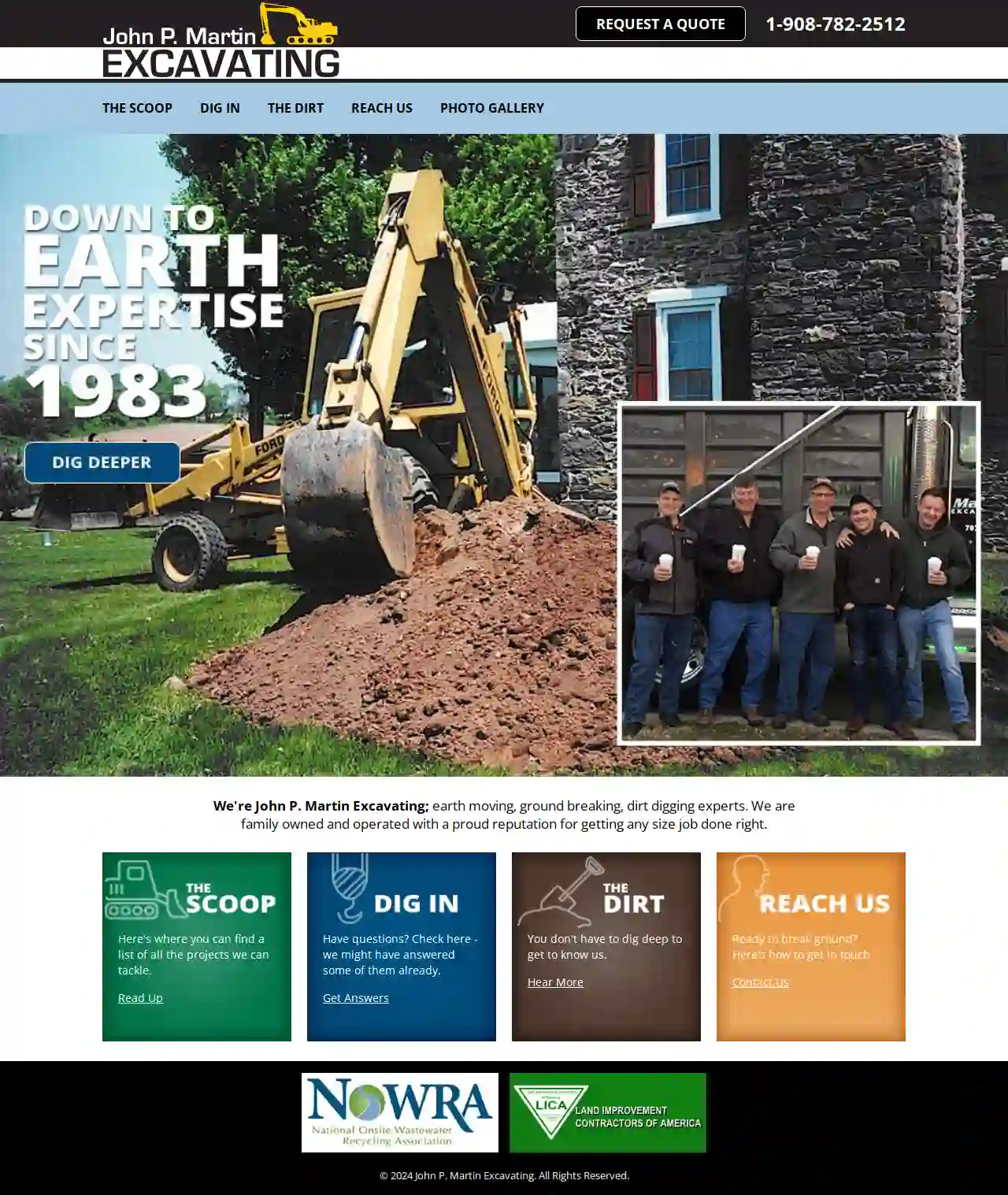
John Martin Excavating
510 reviews123 Main Street, City, 12345, USAbout JPMartinez Excavating JPMartinez Excavating is a family-owned and operated business serving the greater [CITY] area. We have over 20 years of experience in the excavating industry, providing high-quality services to both residential and commercial clients. Our commitment to customer satisfaction and attention to detail has earned us a reputation for excellence in the community. We understand that excavating projects can be complex and require a high level of expertise. That's why we have a team of skilled and experienced professionals who are dedicated to providing you with the best possible service. We use only the latest equipment and techniques to ensure that your project is completed on time and within budget. Whether you need site preparation, foundation work, utility installation, or any other excavating service, JPMartinez Excavating is the company to call. We are committed to providing our clients with the highest level of service and satisfaction. Contact us today for a free estimate.
- Services
- Why Us?
- Testimonials
Get Quote
DigRite Excavation
52 reviewsKirbytown Road, Middletown, New York, 10940, USDigRite Excavation: Trustworthy & reliable services. DigRite Excavation - Family owned and operated. We offer a wide range of services including excavation services, concrete work, and landscaping design and maintenance. We strive to provide excellent service by listening to what our customer needs first. Contact us today so we can bring your project to life! Schedule a free quote Please contact us today 845-552-9517 [email protected]
- Services
- Why Us?
- Gallery
Get Quote
Over 22,076+ Excavation Companies on our directory
Our excavation pros operate in New Cassel and beyond!
ExcavationHQ has curated and vetted Top Excavation Contractors in New Cassel. Find the most reliable pro today.
Frequently Asked Questions About Demolition Contractors
- Dust Suppression: Use water spraying, misting systems, or other dust suppression techniques to control airborne particles.
- Noise Barriers: Erect temporary noise barriers around the demolition site to reduce noise transmission to nearby properties.
- Work Schedule: Schedule noisy demolition activities during permitted hours to minimize disturbance to neighbors.
- Communication: Keep neighbors informed about the demolition schedule and any potential disruptions.
How can I minimize the dust and noise from demolition?
What is a demolition bond?
What is the difference between demolition and deconstruction?
Demolition: Typically involves bringing down a structure quickly and efficiently, often using heavy machinery and potentially explosives. The primary goal is to clear the site.
Deconstruction: Focuses on carefully dismantling a building piece by piece to salvage reusable materials. It prioritizes minimizing waste and environmental impact, often involving manual labor and specialized tools.
The choice between demolition and deconstruction depends on the project's objectives, budget, and environmental considerations.
How do I find demolition contractors near me?
How can I minimize the dust and noise from demolition?
- Dust Suppression: Use water spraying, misting systems, or other dust suppression techniques to control airborne particles.
- Noise Barriers: Erect temporary noise barriers around the demolition site to reduce noise transmission to nearby properties.
- Work Schedule: Schedule noisy demolition activities during permitted hours to minimize disturbance to neighbors.
- Communication: Keep neighbors informed about the demolition schedule and any potential disruptions.
What is a demolition bond?
What is the difference between demolition and deconstruction?
Demolition: Typically involves bringing down a structure quickly and efficiently, often using heavy machinery and potentially explosives. The primary goal is to clear the site.
Deconstruction: Focuses on carefully dismantling a building piece by piece to salvage reusable materials. It prioritizes minimizing waste and environmental impact, often involving manual labor and specialized tools.
The choice between demolition and deconstruction depends on the project's objectives, budget, and environmental considerations.